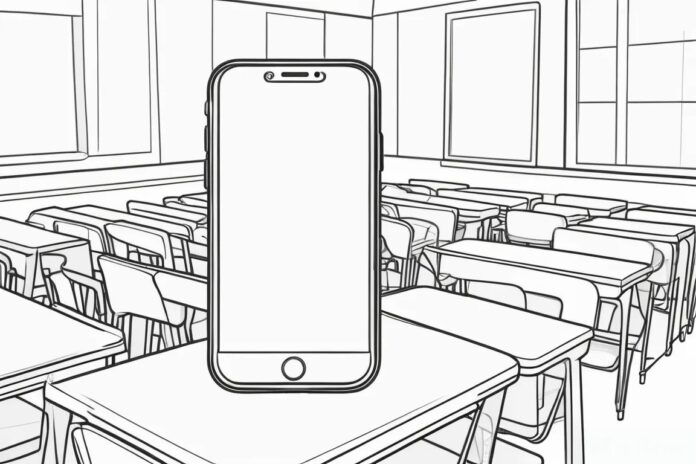Do our devices distract?
Cell phones in today’s generation have made teenagers reliant and dependent on them, and many times, distracting students from their education and overall work ethic in class.
Psychologists believe that these trends are due to teenagers’ consciousness being directly linked to their phones. These events do not only occur during break and lunch times, but cell phones serve as one of the most significant distractions for students within a classroom setting.
Studies have shown that phones can heavily impact a student’s learning experience.
One example of college students using their phones during class, scored much lower than the students without them. The freedom of giving students the ability to have their phones, in this case, should be stripped, as students who are not limited to their cell phones are easily distracted in class, interfering with their results.
Why have students become psychologically connected to cell phones?
Typically, high school students are bonded with their cell phones, due to them being raised with them in their hands, and most kids around the age of 7-14, are exposed to inappropriate and unrestricted phones at a very young age.
These events have directly linked to the idea that the average teenager spends about 7-9 hours on their phones and other screens. Results shown from this demonstrate how teenagers have become deeply involved in the virtual world, and have let technology take control of their everyday lives.
Excessive screen time has also been linked to a mass decline in mental health, with many cases of depression, anxiety, and even self-harm.
The Impact of Social and Emotional Health
Phone usage in class could also be directly linked to teenager’s social interactions.
Excessive phone usage could also isolate teens from others, distracting them from building real-life connections with classmates. Many times, this results in feelings of loneliness and exclusion, negatively impacting their social health.
Currently, there is an initiative called the Phone Free Schools movement, which promotes a school free of these distractions, allowing students to go through their day without the harms of social media.
How Could Phones Benefit Student Learning?
Though cell phones could serve as a major distraction, with the right guidance, cell phones could be used as a major participation tool, using answer polls and questionnaires on social media has helped many students. These types of activities could be very impactful, especially for students who are quite shy. In schools like ICSA, the privilege of having cellphones in class allows for this type of creativity.
In examples of students learning in foreign countries, there are hundreds of potential translator apps that these students could use for better comprehension. Additionally, cell phones could be used for high school and university students to aid in organization and communication.
Phone applications like myHomework are just one example of many apps that students could use for better organization. Students can use Instagram, or Snapchat, to communicate with their peers, asking questions about work that needs done.
How do cell phones affect ICSA students?
As ICSA students entered this 2023-24 school year, students were shocked by the unveiling of the new rule, forcing students to submit their phones in a box in front of their classroom.
US principal Mr. Pontius claimed that he’s researched a lot about this topic, and that teenagers have a psychological link to their phones, disrupting them from class work. Students have had mixed feelings about this new rule.
In an interview conducted with 10th-grade student Timi Bello, he states “Most teachers don’t even check for your phones, so the whole concept of the rule is pointless, as most students I’ve seen barely even use their phones in class.”
When asked about the impact it has on your brain while the phone is still in your bag, Mousa Drammeh, another 10th grader says, “I don’t see exactly how the phone affects your mind, but I can see Mr. Pontius’s concerns over this issue. Personally, I don’t mind the rule, as in general I barely use my phone.”
How effective is this new phone rule?
With the school year coming to an end, ICSA should deepen the overall effectiveness of this new rule. After the December break, many teachers have already given up with the phone box.
With teachers getting carried away with workloads, most students end up just leaving their phones in their bag or their pockets because they are too busy to notice.
With a new year approaching, we will see what rule will be enforced regarding phones, as it continues to be a highly debated topic for teens and adults alike.


